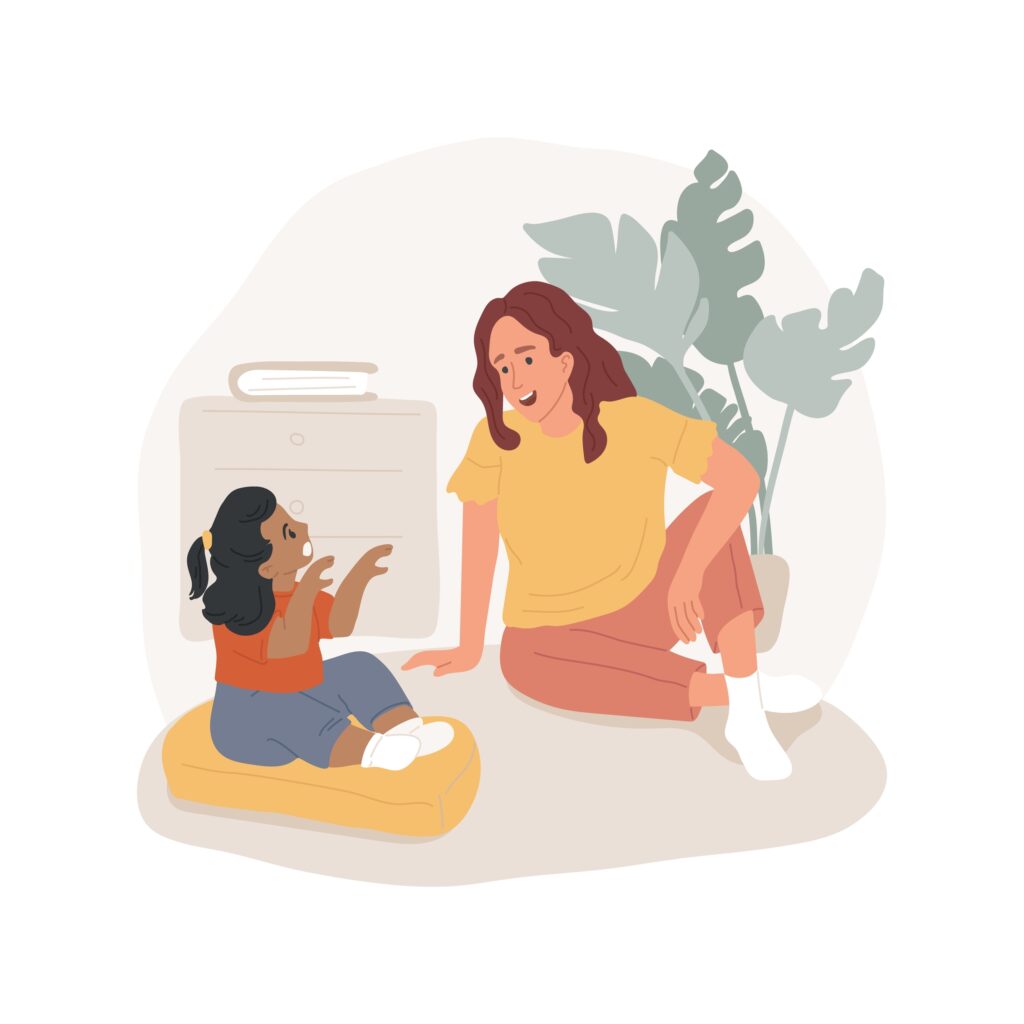
Blog
Strategies for Encouraging Language Development in Toddlers
Author: DrSensory
October 31, 2024
Strategies for Encouraging Language Development in Toddlers
Language development is a crucial part of a toddler’s growth, and fostering this skill can have lasting impacts on their communication abilities and social interactions. Parents and caregivers can adopt a variety of strategies to support toddlers as they learn to express themselves through words and sentences. Here are effective strategies to encourage language development in young children:

Create a Language-Rich Environment
One of the most effective ways to boost language development in toddlers is to surround them with rich and varied language experiences. This can be done by talking to them regularly about different subjects, narrating daily activities, and describing what you see and do together. Reading books aloud is particularly beneficial, as it exposes toddlers to new vocabulary, sentence structures, and storytelling styles. Select books with bright illustrations and engaging narratives that capture their interest and encourage interaction.
Encourage Two-Way Communication
Active engagement in conversations with toddlers is essential for stimulating their language skills. Encourage them to express their thoughts and feelings, and be patient as they try to verbalize their ideas. Ask open-ended questions that prompt them to think and respond, such as “What did you do today?” or “How do you feel about that?” Listening attentively and giving thoughtful responses validates their efforts and motivates them to keep communicating.
Play Interactive Games
Games and activities that require verbal expression can significantly enhance a toddler’s language abilities. Simple games like “I Spy” or “Simon Says” can help children practice following instructions and identifying objects in their environment. Singing songs with repetitive lines and rhymes also strengthens memory and pronunciation. Additionally, role-playing and pretend play activities encourage toddlers to create dialogues and scenarios, fostering creativity along with language development.
Expand on What They Say
When a toddler makes a statement or asks a question, expand on it by adding more detail or context. For example, if a child says “doggy,” you might respond with “Yes, that is a big brown doggy. The doggy is barking.” This practice, known as “language expansion,” helps toddlers learn how to build more complex sentences and understand the nuances of language.
Encourage Social Interaction
Interacting with peers is another avenue for toddlers to develop language skills. Arrange playdates or attend group activities where they can engage with children of similar ages. These interactions provide opportunities for toddlers to practice verbal communication in a social setting, which can enhance their social and language development simultaneously. Observing and imitating other children can also introduce them to new words and expressions.
Limit Screen Time
While educational television shows and apps can have some value, they should not replace real-life interactions, which are far more effective for language learning. Limit screen time and focus instead on engaging toddlers in conversations and activities that stimulate their thinking and expression. Direct interaction allows for immediate feedback and is more conducive to developing language skills.
Be Expressive and Use Gestures
Non-verbal cues such as gestures, facial expressions, and body language can help toddlers understand and learn new words. Pairing words with actions, like waving while saying “bye-bye” or pointing while naming objects, reinforces associations and aids memory. Being expressive in your interactions adds another layer of meaning to spoken language, making it easier for toddlers to grasp.

Encouraging language development in toddlers hinges on creating an environment rich with language exposure and interaction. By adopting these strategies, parents and caregivers can greatly enhance their child’s linguistic abilities, setting a strong foundation for future learning and communication. Remember, every child’s development timeline is unique, and it’s important to be patient and supportive throughout the learning process. Language learning not only enriches communication skills but also fosters cognitive, emotional, and social growth, paving the way for a fulfilling developmental journey.
related blogs
Your child is constantly moving, crashing into furniture, or having meltdowns in response to seemingly minor things like a loud
Your toddler refuses to wear certain clothes, has huge meltdowns in noisy places, or is an extremely picky eater, limited
Your child seems to miss verbal instructions, struggles to follow conversations in noisy environments, and often asks "what?" even when
On the surface, autism and Ehlers-Danlos syndrome (EDS) might seem like two entirely unrelated conditions. One is a neurodevelopmental condition
The intense head pain begins, lights feel blindingly bright, and every sound seems amplified to an unbearable level. You retreat











































































